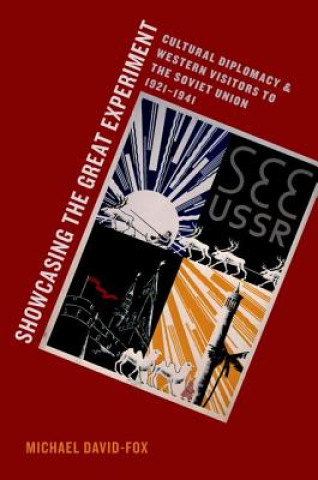
Dostava
Savjetnik za kupnju





Proizvod vam ne odgovara? Nema veze! Možete nam vratiti unutar 30 dana
 Poklon bon
u bilo kojoj vrijednosti
Poklon bon
u bilo kojoj vrijednosti
S poklon bonom ne možete pogriješiti. Za poklon bon primatelj može odabrati bilo što iz naše ponude.
Showcasing the Great Experiment
 Engleski
Engleski
 152 b
152 b
30 dana za povrat kupljenih proizvoda
Moglo bi vas zanimati i


During the 1920s and 1930s thousands of European and American writers, professionals, scientists, artists, and intellectuals made a pilgrimage to experience the "Soviet experiment" for themselves. Showcasing the Great Experiment explores the reception of these intellectuals and fellow-travelers and their cross-cultural and trans-ideological encounters in order to analyze Soviet attitudes towards the West. Many of the twentieth century's greatest writers and thinkers, including Theodore Dreiser, Andre Gide, Paul Robeson, and George Bernard Shaw, notoriously defended Stalin's USSR despite the unprecedented violence of its prewar decade. While many visitors were profoundly affected by their Soviet tours, so too was the Soviet system. The early experiences of building showcases and teaching outsiders to perceive the future-in-the-making constitute a neglected international part of the emergence of Stalinism at home. Michael David-Fox contends that each side critically examined the other, negotiating feelings of inferiority and superiority, admiration and enmity, emulation and rejection. By the time of the Great Purges, these tensions gave way to the dramatic triumph of xenophobia and isolationism; whereas in the twenties the new regime assumed it had much to learn from Western modernity, by the Stalinist thirties the Soviet order was declared superior in all respects. Drawing on the declassified archival records of the agencies charged with crafting the international image of communism, David-Fox shows how Soviet efforts to sell the Bolshevik experiment abroad through cultural diplomacy shaped and were, in turn, shaped by the ongoing project of defining the Soviet Union from within. These interwar Soviet methods of mobilizing the intelligentsia for the international ideological contest, he argues, directly paved the way for the cultural Cold War.
Informacije o knjizi
 Engleski
Engleski
Kategorija




 Kako kupovati
Kako kupovati


























